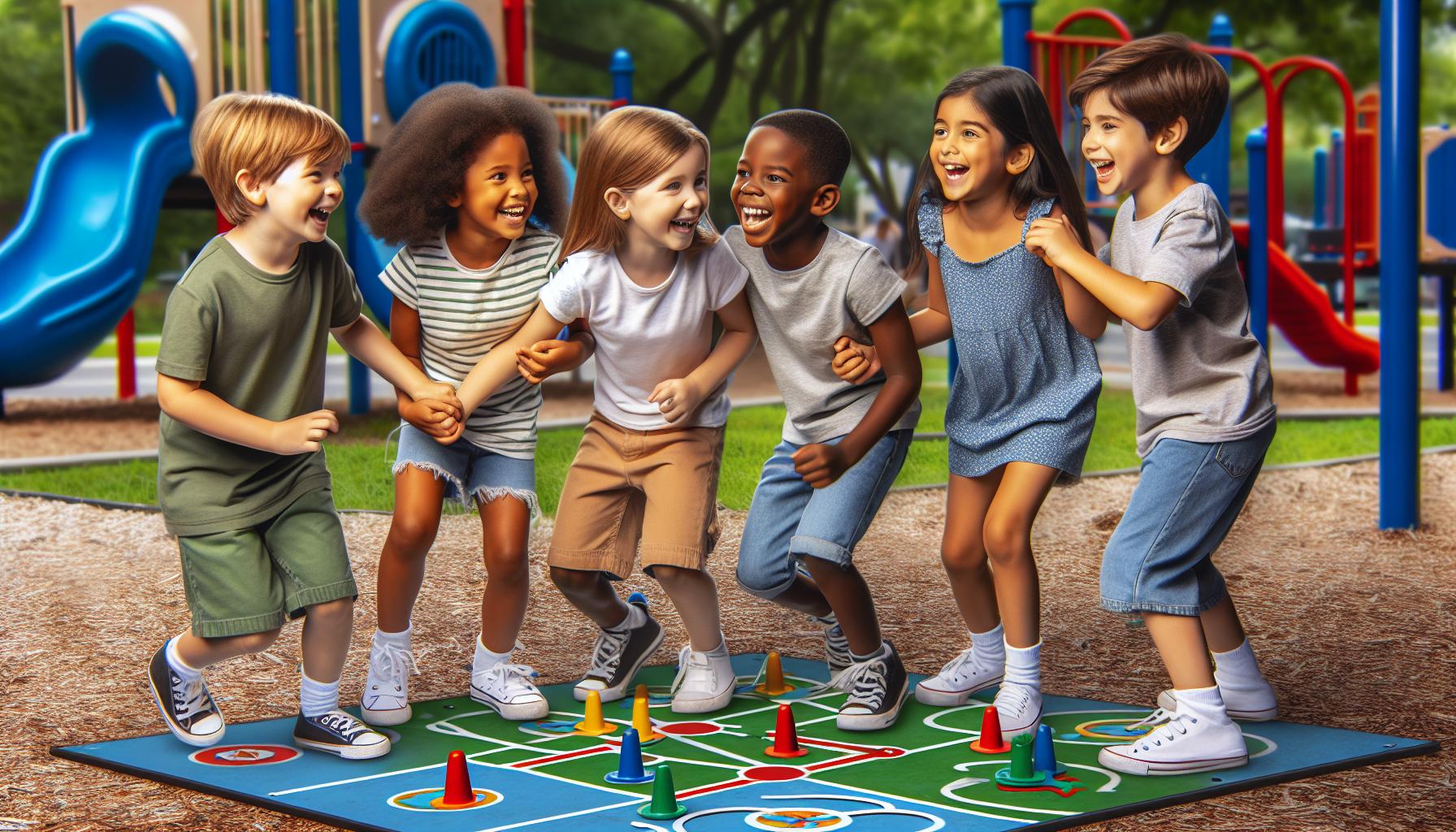Positive parenting isn’t just a trend; it’s a transformative approach that shapes a child’s development in profound ways. I’ve seen firsthand how nurturing environments foster resilience and emotional intelligence in kids. When parents engage with empathy and encouragement, they lay the groundwork for their children to thrive both socially and academically.
One of the most significant effects of positive parenting is the boost in a child’s self-esteem. Kids raised in supportive households tend to feel more confident and valued, which influences their interactions and decision-making. This article dives into the lasting impacts of positive parenting and explores how it cultivates a sense of security that benefits children throughout their lives.
Key Takeaways
- Boosts Self-Esteem: Positive parenting fosters high self-esteem in children, encouraging them to take on challenges and view mistakes as learning opportunities.
- Enhances Emotional Intelligence: Children develop better emotional regulation, allowing them to manage their feelings and exhibit lower levels of anxiety and depression.
- Improves Behavior and Discipline: Supportive parenting techniques lead to better behavior, self-discipline, and respect for authority through positive reinforcement.
- Promotes Academic Success: Nurturing environments correlate with greater academic achievement, as children feel valued and motivated in their studies.
- Develops Communication Skills: Open dialogues in positive parenting help children learn effective communication, fostering stronger interpersonal relationships.
- Encourages Resilience: Children learn coping strategies and adaptability, enabling them to face challenges constructively and become resilient individuals.
Which Is an Effect of Positive Parenting on a Child?
Positive parenting refers to an approach that nurtures children’s emotional, social, and cognitive development. This strategy uses constructive techniques to promote healthy relationships and effective communication.
Definition and Principles
Positive parenting combines love, support, and guidance to foster a secure and stimulating environment. It emphasizes key principles, including:
- Empathy: Understanding children’s feelings and perspectives.
- Respect: Valuing children’s opinions and individuality.
- Consistency: Establishing predictable routines and expectations.
- Encouragement: Motivating children through positive reinforcement and praise.
These principles create a foundation for strong parent-child bonds while promoting healthy emotional regulation.
Importance in Child Development
Positive parenting significantly influences child development. Research indicates that children raised in supportive environments demonstrate:
- Higher Self-Esteem: They possess a strong sense of worth, contributing to confidence in their abilities.
- Improved Emotional Intelligence: They express and manage emotions effectively, fostering stronger relationships.
- Enhanced Social Skills: They engage more positively with peers, leading to better collaboration and conflict resolution.
These benefits create a ripple effect, promoting long-term success in various aspects of life, including education and personal relationships.
Emotional Effects on Children

Positive parenting creates a nurturing environment that has significant emotional benefits for children. Increased self-esteem and enhanced emotional regulation are two major effects that showcase the impact of this approach.
Increased Self-Esteem
Increased self-esteem is a key emotional effect of positive parenting. Children who experience consistent support and encouragement develop a strong sense of self-worth. Positive feedback from parents reinforces their abilities and fosters confidence in their skills. Research shows that children with high self-esteem set achievable goals and take on challenges with a positive attitude. They view mistakes as learning opportunities rather than failures, which leads to continued personal growth. Parenting strategies that emphasize unconditional love and acknowledgment contribute to sustainable self-esteem.
Enhanced Emotional Regulation
Enhanced emotional regulation emerges as another significant effect of positive parenting. Children learn to manage their feelings effectively when nurtured in a supportive setting. Parents who model appropriate emotional responses provide children with the tools to express themselves constructively. This guidance helps children identify their emotions and develop coping strategies. Studies indicate that children with strong emotional regulation skills exhibit lower levels of anxiety and depression, leading to improved social interactions and academic performance. Understanding and managing emotions becomes a lifelong skill that positively shapes their relationships and experiences.
Behavioral Outcomes

Positive parenting leads to notable behavioral outcomes for children. These outcomes include improved behavior, discipline, and greater academic achievement.
Improved Behavior and Discipline
Improved behavior results from positive parenting techniques that emphasize encouragement and constructive feedback. Children learn to express themselves without fear of punishment, fostering a cooperative attitude. By consistently applying strategies like positive reinforcement, children develop self-discipline and respect for authority. Research shows that parents who model respectful communication and set clear expectations tend to raise children with better impulse control and conflict resolution skills.
Greater Academic Achievement
Greater academic achievement stems from the supportive environment created by positive parenting. Children thrive in settings where they feel safe and valued, leading to increased motivation and engagement in their studies. Studies indicate that kids from nurturing homes often perform better academically than their peers, reflecting enhanced critical thinking and problem-solving abilities. Furthermore, parental involvement in education, such as attending school events and helping with homework, correlates with higher grades and a more positive attitude toward learning.
Social Skills Development

Positive parenting significantly enhances a child’s social skills, equipping them with essential tools for interaction and relationship-building. Through nurturing practices, children learn to navigate social environments confidently.
Better Communication Skills
Better communication skills stem from the supportive dialogue encouraged in positive parenting. Parents who engage in open, respectful conversations model effective communication techniques. Children observe how to express thoughts and feelings clearly, listen actively, and respond appropriately in various contexts. This foundational skill enables them to articulate their needs and understand others, fostering stronger connections with peers and adults. Studies show that children with robust communication skills often perform better academically and socially, leading to more positive interactions both inside and outside the classroom.
Stronger Interpersonal Relationships
Stronger interpersonal relationships develop as children experience positive interactions through empathetic parenting. Positive parenting emphasizes emotional intelligence and respect, showing children how to build trust and empathy in their relationships. These skills translate into better friendships, as children learn to recognize and respond to others’ emotions effectively. They also gain conflict resolution skills, enabling them to navigate disagreements constructively. Research indicates that children raised in nurturing environments are more adept at forming lasting friendships and maintaining healthy relationships, resulting in a more supportive social network as they grow.
Long-Term Impacts
Positive parenting produces significant long-term impacts on children’s development, particularly in enhancing their resilience and shaping their future parenting styles.
Resilience and Coping Strategies
Resilience develops through supportive parenting practices that encourage children to face challenges constructively. Children learn effective coping strategies as parents model problem-solving skills and emotional regulation. Research shows that children who experience these practices exhibit lower rates of anxiety and increased adaptability in stressful situations. Examples include handling failure with a growth mindset, viewing adversity as an opportunity to develop perseverance. Additionally, children raised in nurturing environments demonstrate improved emotional intelligence, which fosters self-motivation and resilience in facing life’s difficulties.
Influence on Future Parenting Styles
Parents who practice positive parenting often raise children who adopt similar approaches. Research indicates that children internalize their parents’ methods, applying empathic and supportive techniques in their own families. For instance, a child raised in an environment characterized by patience and understanding typically becomes a patient and understanding parent. This cycle of positive parenting contributes to stronger family bonds and healthier emotional environments in subsequent generations. Positive parenting not only influences individual children but creates a ripple effect, enhancing overall community dynamics through intergenerational reinforcement of positive methods.
Positive Parenting
Positive parenting truly shapes a child’s future in profound ways. The benefits extend far beyond childhood and lay the groundwork for a lifetime of emotional well-being and social success. I’ve seen firsthand how children nurtured in supportive environments develop resilience and confidence that serve them well into adulthood.
By fostering self-esteem and emotional intelligence, positive parenting equips children with essential skills for navigating life’s challenges. As they grow, these children not only thrive academically but also build meaningful relationships that enrich their lives. The ripple effects of positive parenting create a legacy of empathy and support that strengthens families and communities for generations to come.

